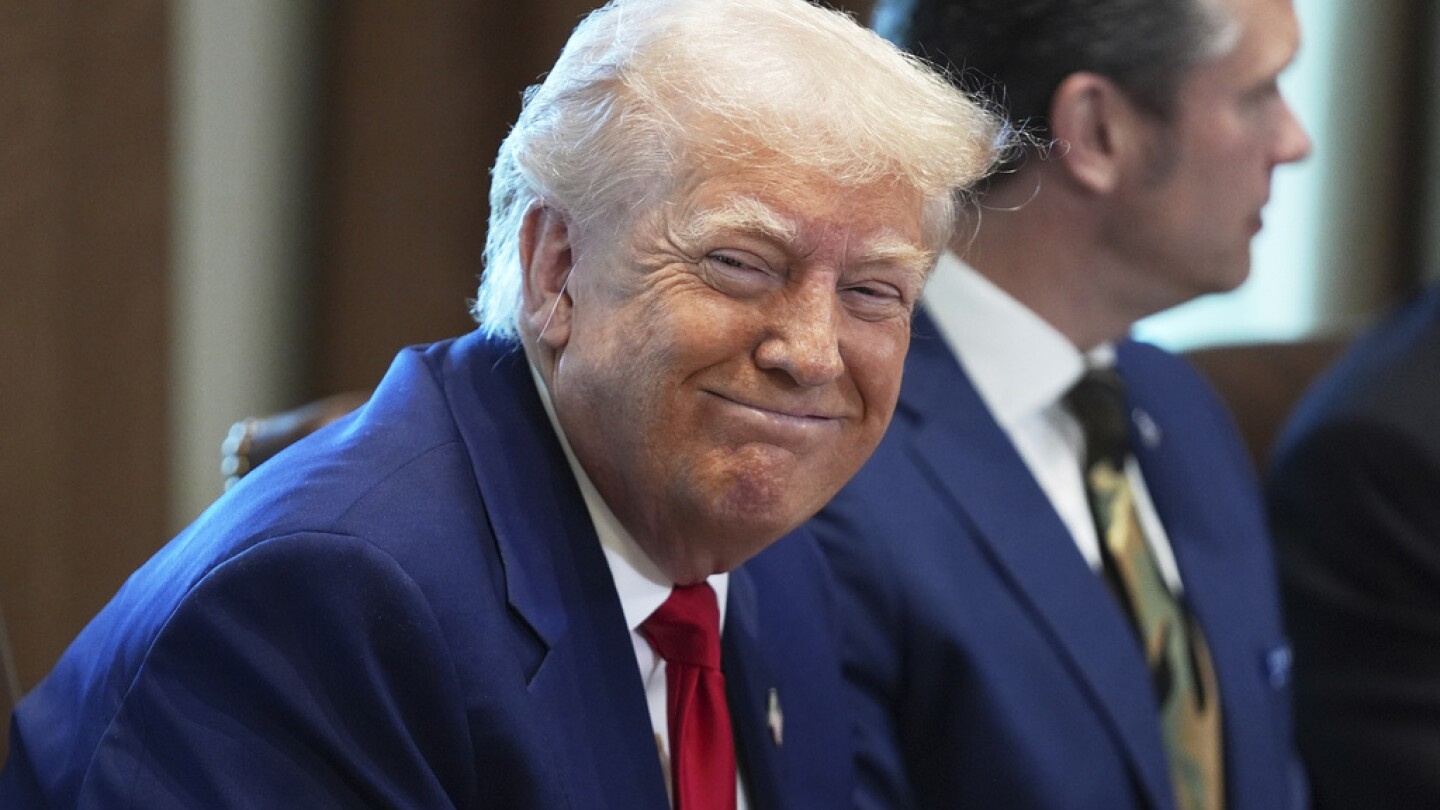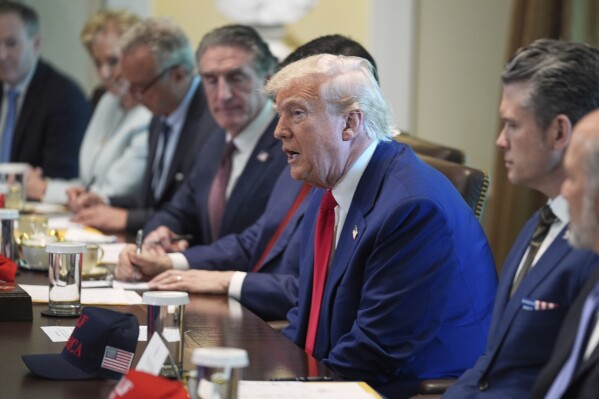## Your Wallet’s Taking a Hit: Can Trump’s Trade Wars Level Up the Economy?
Raise your hand if you’ve felt the pinch lately. Prices on your favorite snacks up? Gas prices making you want to stay home and play? Yeah, you’re not alone. Turns out, the U.S. economy just took a hit – a 0.3% dip in the first quarter, according to the Associated Press. And while there are a bunch of factors at play, the looming shadow of Trump’s trade wars is hard to ignore.

Think of it like this: the global economy is a massive, interconnected game, and trade wars are like throwing grenades into the mix. Suddenly, businesses are scrambling, supply chains are disrupted, and everyone’s trying to figure out how to adapt.

Uncertainty Reigns: The Psychological Impact on Businesses and Gamers
A Climate of Hesitation

The recent GDP contraction, coupled with the ongoing trade wars, has injected a significant dose of uncertainty into the economic landscape. This uncertainty can have a profound psychological impact on businesses, leading to hesitation in investment, hiring, and expansion. A sense of unease can also ripple through the gaming industry, affecting consumer confidence and potentially dampening demand for new games and gaming hardware.

Impact on Development Cycles
For game developers, this economic climate can disrupt development cycles. Uncertainty about future sales and consumer spending may lead to studios prioritizing shorter development times and less ambitious projects. This could result in a shift towards more familiar genres and a potential slowdown in the introduction of innovative new games.

Looking Ahead: Will the Economy Rebound?
Second Quarter Forecast: A Potential Bounce Back?
Despite the first-quarter contraction, some economists remain optimistic about a rebound in the second quarter. According to Paul Ashworth of Capital Economics, “We forecast that April-June growth will rebound to a 2% gain,” citing a likely reversal in the surge in imports that dragged down GDP in the first quarter. This potential bounce back hinges on the assumption that the trade tensions will not escalate further and that consumer spending will remain relatively resilient.

Fed’s Dilemma: Balancing Growth and Inflation
The Federal Reserve faces a delicate balancing act. While the economic slowdown may prompt calls for interest rate cuts to stimulate growth, the rising inflation rate could make such a move problematic. The Fed’s preferred inflation gauge, the PCE price index, rose at an annual rate of 3.6% in the first quarter, exceeding the Fed’s target of 2%. This dilemma leaves the Fed with limited options and underscores the complex challenges facing the U.S. economy.
Long-Term Implications: A Recession on the Horizon?
While some economists anticipate a second-quarter rebound, others remain concerned about the long-term implications of the trade wars and the potential for a recession. Carl Weinberg, chief economist at High Frequency Economics, warned that “the downturn of the economy will get worse in the second half of this year.” He pointed to the “corrosive uncertainty” and the “higher taxes” imposed by the tariffs as factors that could drag GDP growth into negative territory by the end of the year.
The Gamer Perspective: How Trade Wars Affect Your Play
Higher Prices: Will Your Favorite Games Become More Expensive?
The escalating trade tensions could lead to higher prices for gamers. With tariffs imposed on imported goods, including gaming consoles, components, and accessories, consumers may face increased costs at the point of sale. This could impact the affordability of new game releases and accessories for gamers on a budget.
Supply Chain Issues: Are Your Pre-Orders in Jeopardy?
Trade wars can disrupt global supply chains, leading to delays and shortages. Gamers who have pre-ordered highly anticipated games or gaming hardware may find their deliveries delayed or even canceled due to supply chain disruptions caused by the trade tensions.
The Big Picture: Understanding How Economic Downturns Impact Gaming
Economic downturns generally have a negative impact on the gaming industry. During times of economic uncertainty, consumers tend to cut back on discretionary spending, which includes entertainment. This can lead to lower sales of new games and gaming hardware.
However, the gaming industry also has a history of resilience. During past economic downturns, certain genres, such as mobile gaming and free-to-play games, have thrived as consumers sought more affordable entertainment options. It remains to be seen how the current trade wars and economic uncertainty will specifically impact different segments of the gaming industry.
Conclusion
So, the US economy took a bit of a stumble in the first quarter, shrinking by 0.3%. While the news might sound grim, remember that economic indicators are rarely straightforward. The article points to the ongoing trade wars initiated by the Trump administration as a significant factor contributing to this dip. Businesses are feeling the pinch, grappling with uncertainty and increased costs, leading to slower growth. This isn’t just about numbers on a page; it’s about real people and their livelihoods.
The implications of this economic slowdown are far-reaching. From potential job losses to reduced consumer spending, the ripple effects can be felt across various sectors. This situation also raises crucial questions about the long-term impact of trade policies and the delicate balance between economic growth and international relations. As we move forward, it’s essential to monitor these developments closely and consider how they might shape the gaming industry. Will we see developers tightening budgets? Will game prices rise? Will consumers scale back on their spending? These are just some of the questions that loom large in the wake of this economic news. The path ahead remains uncertain, but one thing is clear: the world of gaming, like every other industry, is deeply intertwined with the broader economic landscape.
The future of the gaming industry, like the US economy, hangs in the balance. Will we navigate these turbulent waters with resilience and innovation, or will the storm leave lasting scars? The answers will unfold in the months to come, and the choices we make today will determine the course of our collective tomorrow.